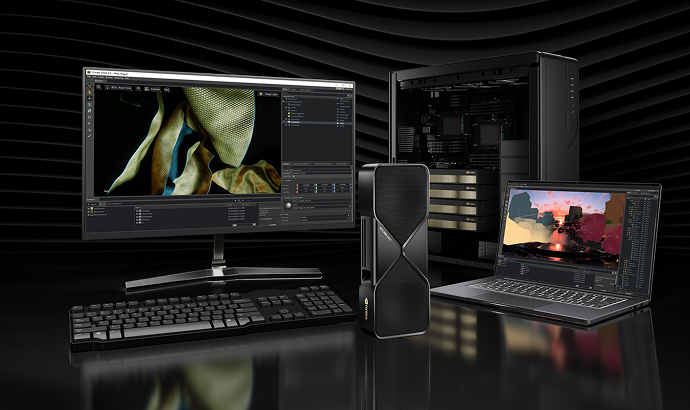

Writing About AI
Uvation
Reen Singh is an engineer and a technologist with a diverse background spanning software, hardware, aerospace, defense, and cybersecurity. As CTO at Uvation, he leverages his extensive experience to lead the company’s technological innovation and development.

The demand for AI servers is described as “skyrocketing”. This growth is fuelled by the increasing reliance on data-driven technologies and the rapid adoption of AI applications across a wide range of industries. According to TrendForce, AI servers are projected to constitute 65% of the global server market by the end of 2024, with an estimated market value of $187 billion. This surge highlights the essential role AI servers play in enabling businesses to utilise technologies like machine learning and predictive analytics. As one source states, “AI is no longer a niche technology; it’s a core driver of business transformation.
There are several types of AI servers meeting diverse business needs:
• Training AI Servers: These are high-end servers designed for training large-scale language models like GPT and BERT. They are equipped with powerful components such as NVIDIA A100 or H100 GPUs and AMD MI300 accelerators to provide immense parallel computing power and memory capacity.
• Edge AI Servers: The growth of IoT and edge computing has increased the need for compact, energy-efficient servers that process data near its source. These servers reduce latency and power consumption, which is critical for applications in smart cities, autonomous vehicles, and retail.
• Cloud AI Servers: Cloud providers like AWS, Microsoft Azure, and Google Cloud offer on-demand AI servers. These are ideal for businesses that need scalable, pay-as-you-go computing power. Hybrid cloud solutions, which merge on-premise and cloud capabilities, are also becoming popular due to their flexibility.
While almost every sector is exploring AI, several industries are at the forefront of adopting AI servers:
• Healthcare: Hospitals and research labs use AI servers for analysing medical images, discovering drugs, and implementing predictive patient care analytics.
• Finance: This sector uses low-latency AI servers for real-time fraud detection, algorithmic trading, and creating personalised financial plans.
• Retail and E-commerce: Retailers depend on AI servers to process customer data for applications like dynamic pricing, personalised recommendations, and supply chain optimisation.
• Autonomous Systems: The automotive and aerospace industries require powerful AI servers to process the massive datasets needed for developing autonomous vehicles and drones.
The competitive landscape includes both established industry leaders and innovative new entrants:
• Industry Leaders: NVIDIA is a dominant force with its A100 and H100 GPUs and CUDA software ecosystem. AMD is a key competitor, offering its MI series GPUs and EPYC processors, which often provide a better cost-to-performance ratio. Intel is also a critical provider with its Xeon CPUs and Habana Labs Gaudi processors.
• Emerging Players: Major cloud companies like Google and AWS are developing their own custom chips, such as Google’s TPU and AWS’s Trainium, to provide tailored AI solutions for their cloud customers. Additionally, startups like Cerebras and Graphcore are challenging the incumbents with new AI-specific architectures designed for high performance in deep learning model training.
The industry is focusing on several key areas to improve efficiency, sustainability, and readiness for the future:
• Power Consumption: As AI servers use significant amounts of energy, there is a strong focus on energy-efficient hardware and optimised cooling systems to lower operational costs.
• Carbon Neutrality: Sustainability is a major concern, prompting manufacturers to design systems with a lower environmental impact and incorporate renewable energy solutions.
• Performance Per Watt: There is a growing demand for hardware that offers higher performance without a proportional increase in energy consumption.
• Deployment Speed: With the fast pace of AI innovation, the time it takes to acquire and configure servers has become a critical factor for businesses.
• Scalability and Flexibility: Enterprises are seeking servers that can scale easily as their workloads grow. This has led to the rising popularity of hybrid and modular designs that allow for upgrades without significant cost or downtime.
Uvation offers end-to-end solutions designed to address the key challenges businesses face when adopting AI servers. The company provides expert consultation and deployment services to simplify the complex process of selecting and integrating the right server solutions. Uvation’s portfolio includes a range of AI servers that ensure seamless scalability for businesses of any size. By staying current with industry trends, Uvation ensures its clients have access to the latest, future-ready innovations in AI computing.
We are writing frequenly. Don’t miss that.

Unregistered User
It seems you are not registered on this platform. Sign up in order to submit a comment.
Sign up now